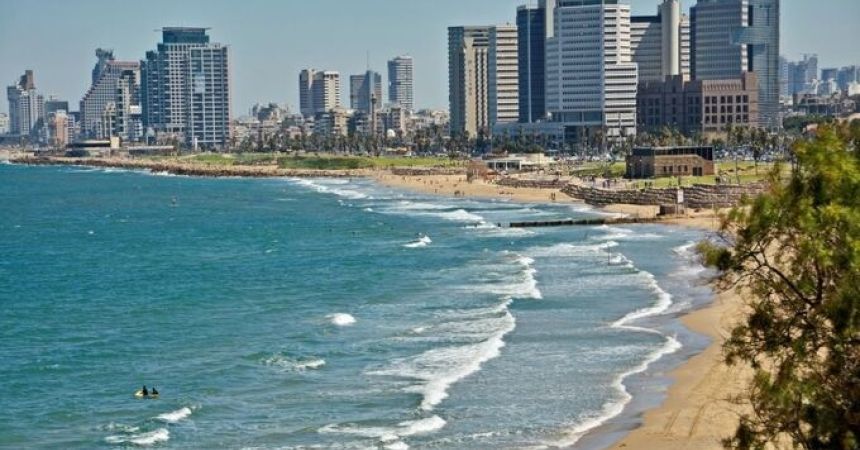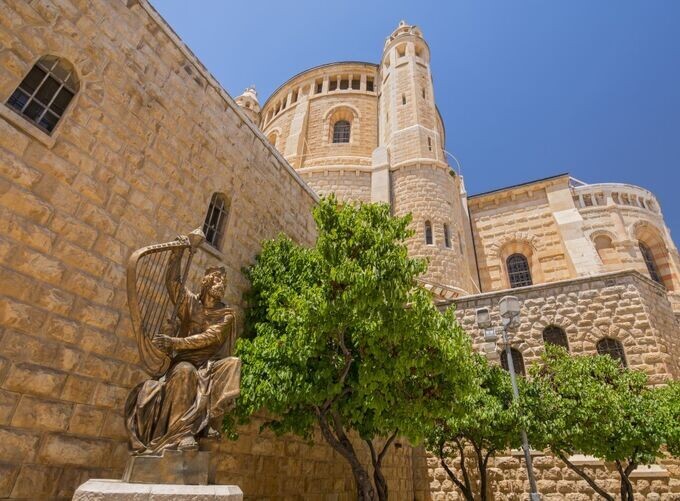
Guide to Currency Used in Israel
When traveling to Israel, understanding the local currency is essential for a smooth and hassle-free experience. The Israeli currency, the New Israeli Shekel (NIS), is used throughout the country. This comprehensive guide will provide you with everything you need to know about the Israeli Shekel, from its history and denominations to practical tips for currency exchange, banking, and managing your money during your stay.
Introduction to the Israeli Shekel
The New Israeli Shekel (NIS), denoted by the symbol ₪ and the currency code ILS, is the official currency of Israel. It was introduced in 1985, replacing the old Israeli shekel at a rate of 1,000 old shekels to 1 new shekel. The name "shekel" is derived from an ancient unit of weight used in the region.
Current Denominations
The New Israeli Shekel is divided into 100 agorot (singular: agora). The currency includes both coins and banknotes:
Coins
10 Agorot: The smallest coin in circulation.
50 Agorot: A half-shekel coin.
1 Shekel: A commonly used coin.
2 Shekels: Another widely circulated coin.
5 Shekels: Often used for small purchases.
10 Shekels: The largest coin in circulation.
Banknotes
20 Shekels: A green note featuring Rachel Bluwstein, a renowned Hebrew poet.
50 Shekels: A purple note featuring Shaul Tchernichovsky, a celebrated Hebrew poet.
100 Shekels: An orange note featuring Leah Goldberg, a prominent Hebrew poet.
200 Shekels: A blue note featuring Nathan Alterman, a famous Hebrew poet.
Currency Exchange in Israel
There are several options for exchanging currency in Israel:
Ben Gurion Airport: Currency exchange booths are available at the arrival terminals, offering convenient but slightly less favorable rates.
Major Banks: Most banks in Israel offer currency exchange services. The rates are generally better than those at the airport, but banking hours may be limited.
Exchange Bureaus
Licensed Exchange Bureaus: Found in major cities and tourist areas, these offer competitive rates and extended hours. Look for authorized bureaus to avoid scams.
Many hotels provide currency exchange services. However, the rates might not be as favorable as at banks or exchange bureaus.
Tips for Currency Exchange
Compare Rates: Shop around and compare rates from different sources to get the best deal.
Avoid Black Market: Always use authorized exchange services to avoid counterfeit currency and scams.
Keep Receipts: Retain exchange receipts as you might need them to reconvert leftover shekels when leaving the country.
Using ATMs and Credit Cards in Israel
ATMs are widely available throughout Israel, including in major cities, tourist areas, and even smaller towns. Here are some tips for using ATMs:
International Compatibility: Most ATMs accept international cards (Visa, MasterCard, etc.).
Fees: Be aware of potential fees from both the Israeli ATM and your home bank.
Safety: Use ATMs in well-lit, secure locations. Avoid withdrawing large sums of money at once.
Credit and Debit Cards
Credit and debit cards are widely accepted in Israel, especially in urban areas and major tourist spots. Here are some considerations:
Accepted Cards: Visa, MasterCard, and American Express are commonly accepted. Discover and Diners Club are less common.
Chip and PIN: Israeli merchants use chip-and-PIN technology. Ensure your card is compatible.
Notify Your Bank: Inform your bank of your travel plans to avoid any issues with your card being blocked for suspicious activity.
Mobile Payments
Mobile payment options like Apple Pay, Google Pay, and local apps like Bit and PayBox are increasingly popular and accepted in many places, including cafes, restaurants, and shops.

Banking in Israel
Israel has a well-developed banking system with several major banks offering a range of services for tourists and expatriates:
Bank Hapoalim: One of the largest banks in Israel, with branches nationwide.
Bank Leumi: Another major bank, offering extensive services and numerous branches.
Discount Bank: Known for competitive rates and services.
Mizrahi-Tefahot Bank: Offers a wide range of banking services.
Opening a Bank Account
If you're touring in Israel for an extended period, you might consider opening a local bank account. Here's what you need:
Documentation: Passport, visa, and proof of address.
Minimum Deposit: Some banks require a minimum deposit to open an account.
Services: Local accounts offer services like online banking, mobile banking, and international transfers.
Banking Hours
Weekdays: Banks are generally open from Sunday to Thursday, 8:30 AM to 2:00 PM.
Extended Hours: Some branches offer extended hours on certain days, typically until 6:00 PM.
Fridays: Banks close early, around 12:00 PM, for Shabbat preparation.
Managing Your Money
The cost of living in Israel can vary widely depending on your location and lifestyle. Here are some average costs to help you budget:
Accommodation: Ranges from $100 per night for budget options to $500+ for luxury hotels.
Meals: An average meal at a mid-range restaurant costs about $15-30. Street food is cheaper, around $5-10.
Transportation: Public transportation (buses, trains) is affordable. Car rentals and taxis are more expensive.
Saving Tips
Public Transport: Use buses and trains for cost-effective travel.
Local Markets: Shop at local markets for fresh produce and affordable goods.
City Passes: Look for city passes that offer discounts on attractions and transportation.
Money Safety
Carry Minimal Cash: Use cards for most transactions to minimize the risk of theft.
Secure Valuables: Use hotel safes for storing valuables.
Be Cautious: Stay aware of your surroundings, especially in crowded areas.
Currency Regulations and Legal Considerations
Import and Export of Currency
Declaration: You must declare if you are bringing in or taking out more than 100,000 NIS (or equivalent in foreign currency).
Limits: There are no restrictions on the amount of foreign currency you can bring into or take out of Israel, but amounts above the threshold must be declared.
Currency Conversion
Converting Back: You can convert leftover shekels back to your home currency at the airport or at authorized exchange bureaus. Keep your exchange receipts.
Rates: Conversion rates may vary, so compare options to get the best deal.
Special Considerations for Business Travelers
Business Etiquette
Meetings: Punctuality is important. Meetings often start with small talk.
Gifts: Business gifts are not common but appreciated. Avoid overly expensive items.
Dress Code: Business attire is generally formal but may vary by industry.
Handling Business Expenses
Receipts: Keep all receipts for business expenses. They are necessary for reimbursement and tax purposes.
Corporate Cards: Use corporate credit cards for business expenses to simplify accounting.
Banking Services for Businesses
Business Accounts: If you plan to conduct business in Israel, consider opening a business bank account for easier financial management.
International Transfers: Use banks that offer competitive rates for international money transfers.
Historical and Cultural Context of the Shekel
Biblical References
The shekel has ancient roots, dating back to biblical times. It was originally a unit of weight used in trade and commerce.
Modern Evolution
The modern Israeli Shekel has undergone several changes. The introduction of the New Israeli Shekel in 1985 marked a significant stabilization of the currency, addressing hyperinflation issues from the early 1980s.
Symbolism and Design
Coins: Often feature symbols significant to Israel’s history and culture, such as ancient artifacts and landmarks.
Banknotes: Showcase prominent Israeli figures from literature and politics, reflecting the country's cultural heritage.
Practical Tips for Tourists
Restaurants: Tipping 10-15% is standard.
Taxis: Tipping is not mandatory, but rounding up the fare is appreciated.
Hotels: Tip porters and housekeeping staff a small amount.
Bargaining
Markets: Bargaining is common in local markets (shuks). Be polite and reasonable.
Fixed Prices: In stores and restaurants, prices are generally fixed.
Emergency Numbers
Police: 100
Medical Emergency: 101
Fire Department: 102
Useful Phrases
Learning a few Hebrew phrases can enhance your travel experience:
Hello: Shalom
Thank you: Todah
Please: Bevakasha
Yes: Ken
No: Lo
The currency used in Israel is the Israeli New Shekel (ILS), symbolized as ₪
Understanding the currency used in Israel, the New Israeli Shekel, is crucial for a smooth and enjoyable visit. From exchanging money and using ATMs to budgeting and understanding local customs, being prepared will help you navigate your trip with ease. Whether you’re exploring historical sites of Israel, enjoying the local cuisine, or conducting business, these tips will ensure you make the most of your time in Israel.



